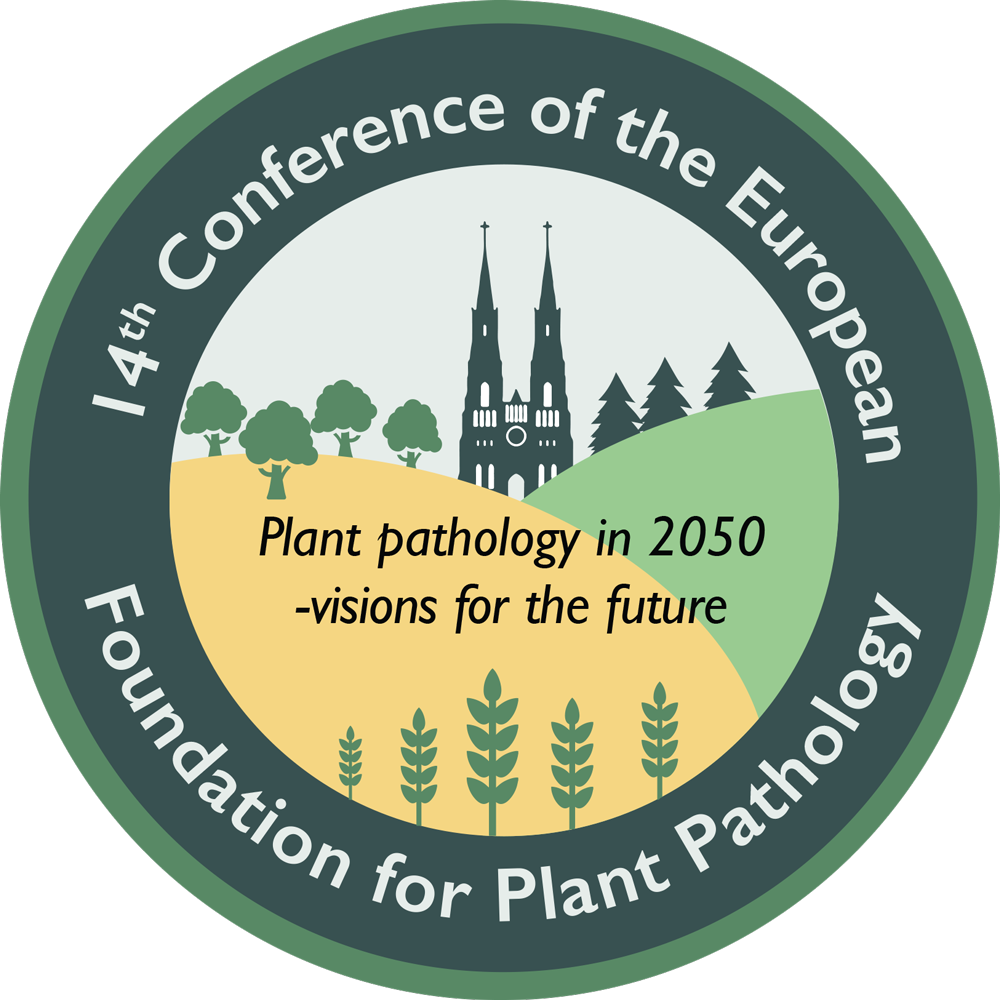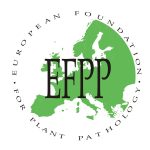Abstract submission
Abstract submission for EFPP and Bunt & Smut is now closed.
Important dates and information
Bunt & Smut Workshop
April 30: Deadline for submission
May: Abstract notification
EFPP Conference
March: Abstract notification
Poster size: The poster format is standing A0 (841 width x 1 189 mm height).
Guidelines
TITLE : A maximum of 120 characters.
TEXT : The abstract must be in English and should be a maximum of 300 words, excluding the title.
It is the author’s responsibility to submit a correct abstract; any errors in spelling, grammar, or scientific fact will be published as typed by the author, if accepted. Poor English may be a cause for rejection.
The Program Committee will accept abstracts for the Scientific Program (oral or poster presentation) on scientific merit.
Only Abstracts of registered participants will be printed. At least one of the authors must be registered for the conference.
Topics
The program committee invites submissions on the following topics:
1. Molecular plant-microbe interactions
The theme of molecular plant-microbe interactions covers a wide range of interactions between plants and microbes, including recognition and signal exchange, mechanisms controlling plant disease resistance and the establishment of mutualistic relationships.
2. Population biology and genetics
The theme of Population biology and genetics includes contributions on the population biology and population genetics of plant pathogens and their antagonists, and the evolution of plant pathogens.
3. Biocontrol, microbiomes and biostimulants
The theme biocontrol, microbiomes and biostimulants covers studies of effects of beneficial microorganisms on plant health, including disease control, plant growth promotion and soil health.
4. Epidemiology and ecology of plant diseases
The theme epidemiology and ecology of plant diseases includes studies of the spatial and temporal dynamics of pathogen populations and ecological interactions with the environment, as well as applications of epidemiology in agriculture and other ecosystems.
5. Crop and tree improvement
The theme crop and tree improvement includes studies on resistance mechanisms, identification of resistance genes, cloning and its implementation, resistance to multiple pathogens and breeding.
6. Precision pathology, digitalization and AI tools
The theme precision pathology, digitalization and AI tools covers digital technologies such as sensors, robotics, artificial intelligence and data interpretation for the detection and management of plant diseases.
7. Plant health in One Health
The theme Plant health in One Health covers the interface of plant health with animal, ecosystem and human health, such as studies on protecting plant health through agrochemical use versus minimising risks to human health, and on antimicrobial and insecticide resistance for food security and related challenges and opportunities.
8. Invasive and emerging plant diseases
The theme invasive and emerging plant diseases covers plant diseases emerging as new threats to crop production, due to climate change, global trade or evolution of new variants. To address these challenges, new tools are needed, including disease surveillance and improved detection technologies, as well as predictive modelling and data analysis to prevent future outbreaks.
9. Developments in plant pathology teaching
The theme Developments in Plant Pathology Teaching aims to promote exchange between teachers. Plant pathology is a truly multidisciplinary science, covering a wide range of topics from molecular aspects to field practices. In order to effectively address the evolving student population with limited backgrounds in agronomy and related subjects, the theme will explore innovative approaches to train students to be adaptable to future changes, to think critically, to be flexible, to communicate and to work in teams.
10. Other
Any other topic that is relevant to the conference, but is not covered by the other themes.
XXIII International Workshop on Bunt and Smut Diseases
You can submit to one of the following themes for the Bunt and Smut Workshop 1-2 June.
- Biology, evolution, diversity, and epidemiology of bunts and smuts
- Molecular mechanisms of pathogenicity and host resistance
- Breeding for host plant resistance
- Integrated control strategies, regulations, and policies
- Other
Doctoral student conference awards
The Doctoral student conference awards aim to allow doctoral students to participate and present their work at the EFPP conference. The conference will cover the registration fee for the conference and up to 4 hotel nights. The student needs to organize their own travel to Uppsala.
Eligibility
Doctoral students OR students who defended their doctoral thesis not earlier than June 2024.
Application
- Name, institutional affiliation and email address
- A half-page summary of your CV
- The name of the conference theme to which you have submitted an abstract
and - The text of the abstract you have submitted
Compile the information above into one .pdf and send the document to EFPP2025@slu.se mark email “Doctoral student conference awards”.
Deadline for submission is 21 February 2025 (same as abstract submission).
The award winners will be announced in March.
Contact
If you have any questions regarding abstract, please contact the abstract support team at abstracts+efpp2025@invajo.com

Contact
Academic Conferences - administration of EFPP 2025
E-mail: efpp2025@akademikonferens.se
Phone: +46 18 67 10 03
Important dates
2024
Nov Abstract submission opens
Nov Registration opens
2025
21 Feb Abstract submission closes
Mar Abstract notification
31 Mar Early bird closes
May Final program
2-5 Jun Conference

